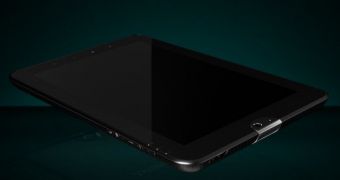One may not have believed it really last year, but the tablet market has definitely started off well, only it appears that there is a serious amount of uncertainty brewing about just how slates will be sold to customers.
Tablets have already set themselves up as a rapidly growing market, to the point where they have begun to slowly eat away at the market share of netbooks.
Being a merger of smartphones and laptops, however, questions have started to be asked regarding the channels through which marketing will be achieved.
Basically, analysts do not know if tablets will be sold through retailers, like any PC or hardware product, or through carriers, like mobile phones.
If slates at least gravitated more towards either 'extreme', the choice wouldn't be all that hard, but they seem to share half their features with smartphones (battery life, fast boot time) and the other with computers (better OS, more performance).
Senior DisplaySearch Analyst Richard Shim is the one that made this observation and says that, though the future of slates certainly looks bright, their ultimate success will still depend on the marketing channels used, so suppliers should choose carefully.
"We have already started to see some of this tablet channel confusion with the Samsung Galaxy Tab. The company said it had shipped around two million tablets since the product’s introduction in November, but actual sell-through seems to be less brisk,” he said.
“Currently, Apple’s iPad is selling well in retail - its own retail - but no one else is replicating the Apple store experience.”
"As the industry learned from the netbook category, carriers are not good at selling computing devices. There are questions around technical support and contact with the customer. [...] Carrier tech support is essentially trained to tell the user to turn off the device and turn it back on as a fix. [...] We have also learned that PC makers and traditional PC channels are not ideal for smartphones,” Shin further states.
“The list of PC makers that tried to create and sell smart phones includes big names that have already failed. It does not help that retail channels, where PCs are often sold, do not seem to offer the best customer experience when it comes to selling smartphones, particularly because the retailer is generally not receiving ongoing revenue from the voice/data plans that smart phones need," said Mr. Shim.

 14 DAY TRIAL //
14 DAY TRIAL //